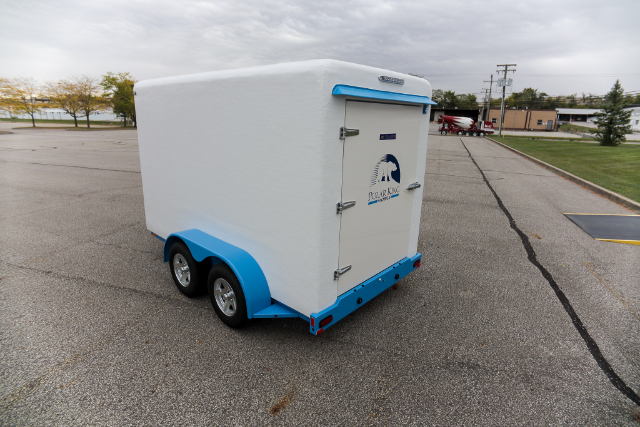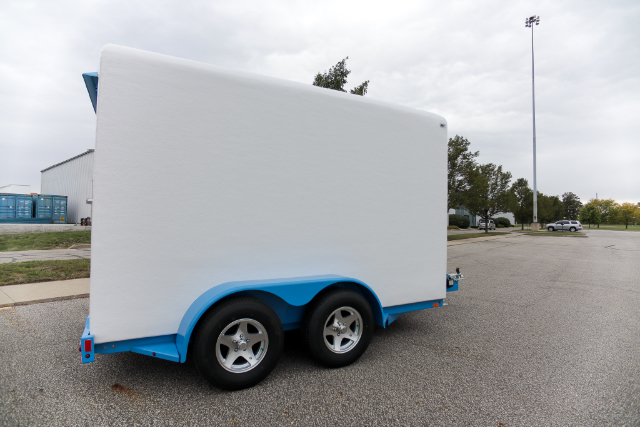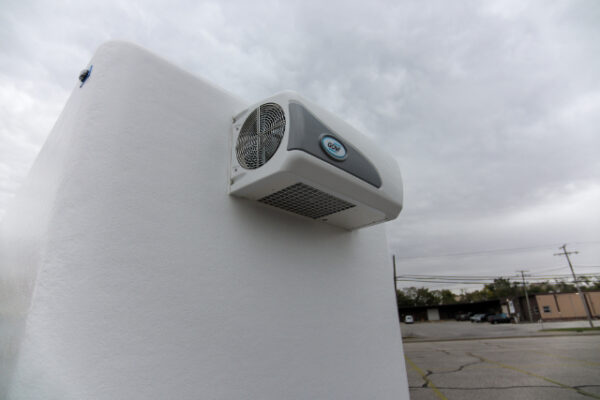The foodservice world is changing fast. Pop-ups, festivals, ghost kitchens, mobile beverage programs, seasonal events, and micro-retail concepts are redefining how businesses operate. Instead of relying solely on fixed brick-and-mortar locations, today’s operators are constantly moving, testing, expanding, and adapting to meet demand wherever it appears.
As this shift accelerates, one thing has become clear: traditional refrigeration is no longer enough. Businesses need cold storage that can move with them. They need flexible, reliable, efficient solutions that don’t require construction, complicated permitting, or permanent infrastructure.
This is where mobile cold storage trailers shine, and where companies offering durable, purpose-built units have a unique advantage. In this article, we’ll explore why mobile cold storage is becoming essential, how different industries are using it, and what best practices organizations should follow when deploying mobile refrigeration in emerging markets.

The Rise of Mobile Foodservice & Why Mobility Matters
The growth of non-traditional food and beverage service is explosive. Everywhere you look, businesses are embracing mobility, speed, and flexibility:
- Food truck parks and outdoor culinary events
- Pop-up restaurants appearing in parking lots, rooftops and repurposed spaces
- Seasonal farmers markets with expanding product variety
- Mobile craft beer, cider, and cocktail experiences
- Short-term or rotating retail activations in malls or mixed-use developments
- College campus events and stadium overflow foodservice
- Temporary or remote catering operations
- Emergency response and relief food distribution
These environments share a common challenge: they’re temporary. A traditional walk-in cooler simply isn’t practical or possible in most of these settings. Even when it is, the cost, time and permitting can be excessive.
Mobile cold-storage trailers solve this problem by delivering:
Mobility
Trailers can be transported anywhere, urban, rural, event-based or remote. This makes them indispensable for businesses running multiple locations or changing sites frequently.
Ease of Setup
Most mobile units require nothing more than basic power to get fully operational. Operators can tow the trailer into place, plug it in, and begin cooling almost immediately.
Scalability
As businesses grow or seasonal demands spike, additional trailers can be added without major space or infrastructure changes.
Versatility
A single trailer might support a pop-up restaurant for one week, provide overflow storage the next, and then be deployed to a festival or temporary retail site.
This flexibility is fundamental to modern foodservice, and it’s why so many operators are moving toward mobile refrigeration as a core part of their strategy.
Emerging Use-Cases for Mobile Cold-Storage Trailers
While mobile trailers have long been used for catering and events, the demand is now coming from many new industries. Here are some of the fastest-growing applications.
1. Pop-Up Restaurants and Experiential Dining
Pop-ups are in high demand, they offer novelty, exclusivity, and low startup cost. But in many cases, their locations lack built-in cold storage.
A trailer provides:
- A reliable, sanitary cold environment
- Space for both ingredients and beverages
- Stability even when the pop-up is outdoors or in a repurposed location
For temporary restaurants and immersive dining events, mobile refrigeration is the backbone that keeps perishable inventory safe and compliant.
2. Farmers Markets & Seasonal Produce Sales
Small farms and growers increasingly need temperature-controlled storage onsite. A mobile cooler helps:
- Maintain product freshness longer
- Expand the number of market days
- Improve food safety and quality during peak seasons
Some farms also use mobile units for curbside pickup or distribution.
3. Food Truck Fleets & Mobile Catering Teams
Food trucks often struggle with limited onboard refrigeration. A mobile trailer staged at the event site provides:
- Backup storage
- Prep-day staging
- Beverage chilling
- Flexible overflow during high-traffic events
For catering companies, mobile cold storage allows them to transport chilled goods safely, then use the same unit on-site for multi-day events.
4. Craft Beverage & Brewery Events
Breweries and beverage brands increasingly host:
- Outdoor beer gardens
- Festival booths
- Mobile tasting events
- Seasonal or special-release launches
Cold storage is essential for beverage quality. A trailer ensures ideal temperatures from transport to service, whether for kegs, cans or bottles.
5. Convenience & Retail Micro-Locations
Retailers experimenting with small footprints (micro-stores, kiosks, event activations) often lack room for conventional refrigeration. A mobile trailer can sit nearby as:
- A temporary walk-in cooler or freezer
- Support for seasonal inventory
- A tool for rapid store expansions without construction
6. Emergency Response & Temporary Infrastructure
In disaster relief or remote operations where standard infrastructure is unavailable, mobile cold storage becomes mission critical. It keeps food, water and medical supplies safe in unpredictable conditions.
Why Mobile Units Are Often Superior to Fixed Walk-Ins

While fixed walk-ins have their place, mobile refrigeration offers compelling advantages:
Reusable Across Events or Seasons
A walk-in serves one location.
A trailer serves dozens of locations over its lifespan.
Reduced Operational Friction
Need more capacity? Tow in another trailer.
A walk-in expansion might take weeks or months.
Lower Maintenance
Many mobile units use seamless fiberglass interiors that:
- Resist rust
- Clean easily
- Reduce bacterial growth
- Avoid metal corrosion found in traditional panel systems
Rapid Deployment
When you need storage now, not six weeks from now, a trailer is the fastest path to operational readiness.
Best Practices for Deploying Mobile Cold Storage
To get the most value from a mobile refrigeration unit, consider the following guidelines.
1. Choose a Suitable Site
Look for:
- Level ground
- Adequate clearance for towing
- Sufficient power supply
- Safe, stable placement for foot traffic
2. Plan Workflow & Access
Trailers often include both rear and side doors. Use this to design efficient, safe loading patterns that reduce temperature loss.
3. Organize the Interior
Shelving systems or E-Track layouts help maintain order, airflow and product integrity. Proper product zoning prevents cross-contamination and maintains optimal temperatures.
4. Maintain Power Reliability
Temporary sites sometimes have unstable power. Consider:
- Backup generators
- Power monitoring
- Temperature logging devices
5. Schedule Routine Maintenance
Even durable units benefit from:
- Gasket checks
- Cleaning
- Refrigeration system inspection
- Door alignment reviews
6. Train Your Team
Clear protocols for loading, food safety, temperature checks and door management prevent spoilage and ensure compliance.
Understanding the ROI of Mobile Refrigeration
Mobile cold storage isn’t just flexible, it’s financially strategic.
Avoids Fixed Construction Costs
No permits, no contractors, no downtime.
Multi-Purpose Utilization
A single asset can support multiple business units, events or seasons.
Reduces Spoilage
Safe, reliable temperature control protects your inventory.
Cuts Transport Costs
Instead of moving inventory back and forth from a central warehouse, you can position the cooler closer to the action.
Supports Business Growth
Expanding to a new site? Test it quickly before committing to build-out.
Looking Ahead: The Future of Mobile Cold Storage
The need for flexible cold chain solutions will only grow. Several trends will shape the market:
Data & Remote Monitoring
Temperature tracking, smart sensors and app-based alerts will become standard to ensure compliance and quality control.
Expansion Beyond Food
More industries are adopting mobile temperature control.
Sustainability Momentum
Electric-only refrigeration, efficient insulation, and reduced transport time contribute to lower overall carbon impact.
Modular, Multi-Unit Systems
As businesses scale, fleets of coordinated mobile units may replace or supplement fixed walk-ins entirely.
The Rise of Mobile Cold Storage Trailers
The world of foodservice, retail and event-based operations is rapidly evolving. Mobility, adaptability and speed are now core operational requirements, and mobile cold storage trailers deliver all three.
For any business that relies on temperature-controlled goods and operates in dynamic or non-traditional environments, mobile refrigeration isn’t just a convenience. It’s becoming an essential competitive advantage.

